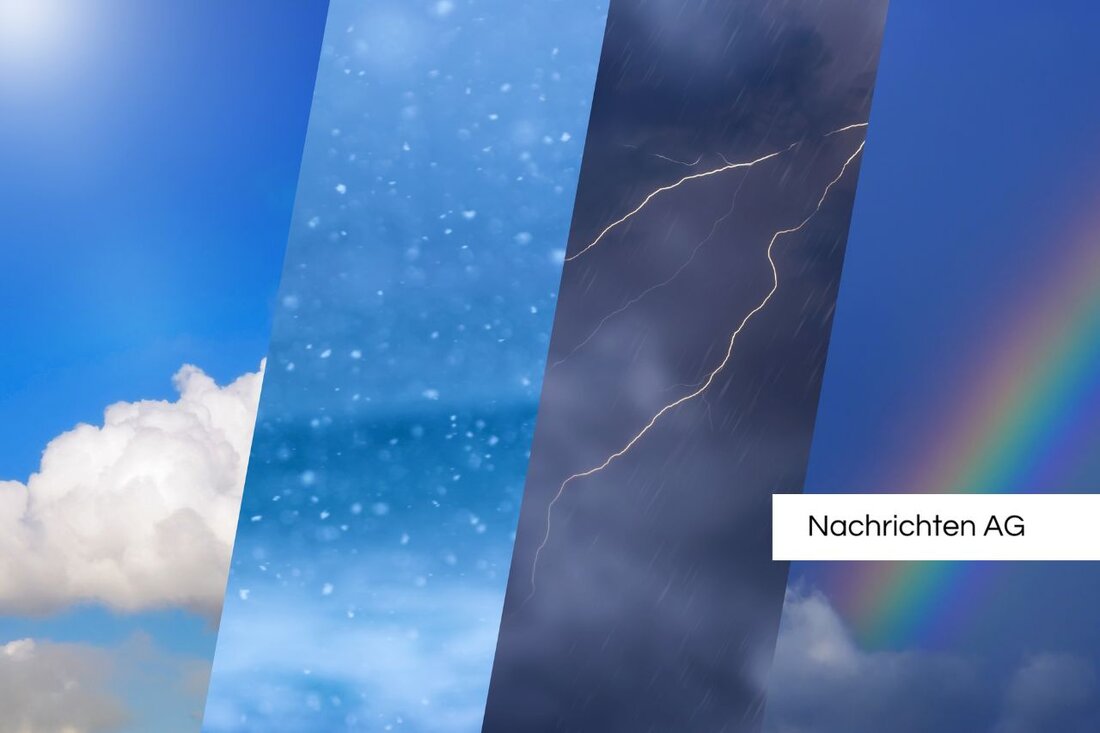Cologne is suffering from drought: taking water from streams is prohibited!
Cologne expects a change in the weather: after an uncomfortable Whit Monday with showers, summer temperatures and dryness will follow.

Cologne is suffering from drought: taking water from streams is prohibited!
Today, June 9, 2025, the weather in Cologne is anything but inviting. Whit Monday brings lots of clouds and isolated showers. While there are many hopes for a change in the weather in the region, a look into the future shows that despite the unpleasant weather, summery temperatures can soon be expected. There will be a lot of sunshine from Wednesday, with temperatures climbing to 20 to 25 degrees in North Rhine-Westphalia, and even up to 30 degrees in Cologne from Thursday. However, the humidity could also bring thunderstorms.
But it's not just the weather that's an issue in Cologne, the ongoing drought is also a cause for concern. Despite the recent rains, the city is struggling with extremely low water levels in many streams. The waters in the Königsforst and in the Wahner Heide are particularly affected. Some streams, such as the Selbach and the Flehbach, have already dried up completely. In order to get the ecological problems under control, the city of Cologne has issued a ban on withdrawing water from all 24 open watercourses, which applies until October 31, 2023 and may be extended.
Water scarcity and ecological challenges
The situation has already reached alarming proportions. According to the city of Cologne, the lower water levels are causing the oxygen content in the waters to fall and the water temperatures to increase. These developments not only endanger the flora and fauna, but also the self-cleaning ability of the rivers. The level of the Rhine in Cologne is currently at 1.65 meters and could drop to 1.70 meters by Friday, which is low but not yet worrying. If the mark falls further and reaches 1.10 meters, measures for shipping traffic may have to be taken.
The causes of the ongoing drought are complex: In the period from February to April 2025, Germany experienced the driest phase since 1931. The month of March in particular was extremely dry, with only 21 percent of the usual precipitation. May also did not bring the expected amounts of rain, with only around 68 percent of normal rainfall. There are regional differences, with the north and northeast being particularly affected. This prolonged drought has a negative impact on agriculture as it leads to reduced plant growth and poor yields.
Raising awareness and tips for saving water
Citizens are called upon to use water carefully. The Federal Environment Ministry and local authorities recommend creative garden irrigation methods and comprehensive measures to improve water supplies. In this context, there is no acute shortage of drinking water in this country, as 70 percent of it comes from groundwater and spring water. However, experts warn that another prolonged drought could jeopardize groundwater recharge, which could have a long-term impact on drinking water supplies.
In these uncertain times, we are faced with two challenges in Cologne: an impending rise in temperature and the need to use our water resources sustainably. The weather will spoil us with temperature peaks until the weekend - but does summer also allow us to immediately show us the seriousness of the situation?
For further information about the weather situation in Cologne, take a look Cologne City Gazette and read more about the effects of drought on 24rhine. You can also find the topic of drought and its long-term consequences for Germany at Federal Environment Agency.

 Suche
Suche
 Mein Konto
Mein Konto